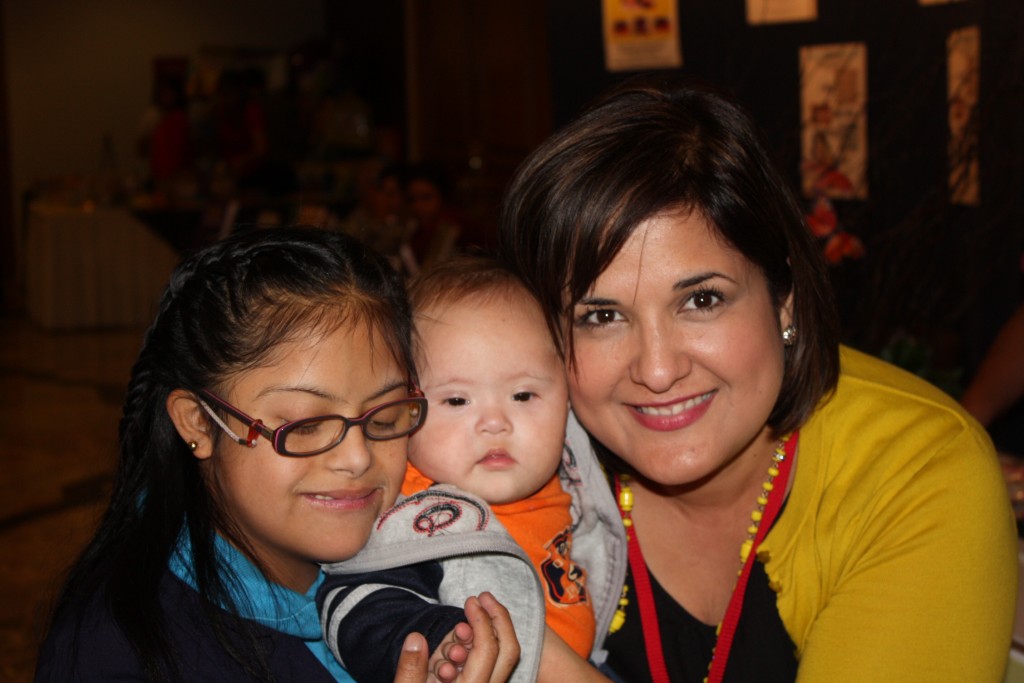Interview with Linda Mora from the National Down Syndrome Congress (May 2015)
- What exactly do you do?
We at the National Down Syndrome Congress (NDSC) provide support services to the community on topics relating to Down Syndrome. I am in charge of managing the resources that we provide for Spanish-speaking families, updating the information relevant to the topic and providing personalised attention to the parents and/or other relatives who contact us from around the world. My job also involves planning pre-conferences, workshops and all the other activities we offer in Spanish for the families and professionals that attend the Annual NDSC Conference. The NDSC Conference is the largest Down syndrome assembly in the world and takes place every year in the United States.
The NDSC has a great professional advisory committee which allows us to advise and resolve the concerns of the people who contact us. We also provide parents with help and information regarding support groups, programs and links to different organisations offering services to people with Down syndrome.
- How long have you been with the National Down Syndrome Congress and what do you like most about your job?
I’ve been working with the NDSC since March 2011 and my favourite part of the job is being able to share with the families and help them to make a difference in the lives of their relatives with Down syndrome. Another important aspect of my job is being able to link Spanish-speaking families with Down syndrome associations within their communities. That I find very rewarding.
- What do you think that your work or the work of the National Down Syndrome Congress in general has changed within society?
Over the last 43 years, we have brought about legal changes which have given people with Down syndrome access to public education in inclusive classes, shared accommodation, health services and supported employment placements, as well as generally promoting a good standard of living for people with Down syndrome.
- You must work with people from other countries. Could you tell us about one time that you have come up against a language barrier?
I am lucky enough to be in contact with families and professionals of many different nationalities and, usually, we send them our information in either English or Spanish. We would love to have documents and information about Down syndrome available in every language but it’s just not possible. For example, in the US, there are certain regions with high Somali populations and we often receive requests from specialists seeking up-to-date information on Down syndrome in the Somali language… But we don’t have any available.
- How did you hear about PerMondo?
We found a hyperlink to PerMondo’s site on the Catalan Down Syndrome web page and loved the work that we saw there.
- What have you needed or do you need the translations for?
We use the translations on the Spanish version of the NDSC website and on our Facebook and Twitter pages, as well as the NDSC blog. For us, every translation is a critical link between our efforts and their results.
- What would you say to the volunteer translators?
I would like to thank them on behalf of the National Down Syndrome Congress and the families we work with from around the world.
Thank you for your generosity and lending your time and talent to our cause. You are making a difference to the lives of thousands of people. Daily, we receive messages and letters of thanks from parents, teachers and other professionals, and that fills us with joy and satisfaction. Thank you for helping us publicise up-to-date information on Down syndrome.
Thank you so much for your time, Linda. It was our pleasure!
Translation by: Joseph Barrett







